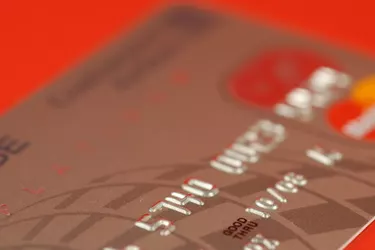
Supplemental Security Income (SSI) is a needs-based program created to help individuals with income and resources below specified levels. Social Security administers the program, but SSI is not Social Security. Income that affects SSI eligibility includes pensions, cash gifts or non-cash help with living expenses. Resources above a certain level, such as money in bank accounts, investments or other items convertible to cash, also affect eligibility for SSI.
What is Income
Video of the Day
When calculating Supplemental Security Income benefits, the Social Security Administration uses any other income the recipient can use to pay his own living expenses. Income includes cash gifts and wages, but income does not have to be paid directly to the recipient. If a third party pays bills on a recipient's behalf for food and shelter, the value of the payment is considered in-kind support and maintenance and reduces benefits. For example, if a recipient receives free rent, the value of the rental property is income. If a relative pays the recipient's electric bill directly to the utility company, the bill's amount is income to the recipient. Some credit card purchases and payments constitute in-kind income.
Video of the Day
Credit Card Gifts
Supplemental Security Income recipients may receive gifts of pre-paid credit cards rather than cash. If the recipient can use the card to get cash at an ATM or buy items such as groceries, the card's face value is income in the month gifted. If the card is only good for non-cash items other than food or shelter -- like movie tickets -- it is not income.
Credit Card Ownership
Supplemental Security income recipients have the right to own and use their own credit cards to buy what they need. The cash or items obtained with the card are not income, since the money owed to the credit card company meets the definition of a loan. If the recipient makes the payments on the credit card, any proceeds from the credit card do not affect SSI.
Making Card Payments
If an SSI recipient pays for food or shelter with his credit card but a third party makes the credit card payments, the payments may be income for the recipient. For example, the recipient buys groceries with his own credit card but cannot make the credit card payments. A friend or relative pays the credit card bill. Since the credit card purchases were for food or shelter, the payments are income. If the credit card purchases were for usual household furnishings, hair appointments or medical bills, help paying the credit card would not be income, provided the payments were made directly to the credit card company, according to the Social Security Administration.
Countable Resource
If a recipient receives a pre-paid credit card, and the gift of the card counts as income, the unused balance of the card could be a resource that affects Supplemental Security Income eligibility. For example, a recipient receives a pre-paid credit card with a face value of $1,000 good for cash at ATMs or to buy groceries. The full value of the card is income to the recipient the month received. If the recipient uses $250 of the card, the remaining $750 available counts toward the recipient's resource limit, currently $2,000 for an individual or $3,000 for a couple. If an individual has $1,500 in a savings account in addition to the credit card, he is ineligible for SSI until resources decrease, according to the Social Security Administration.